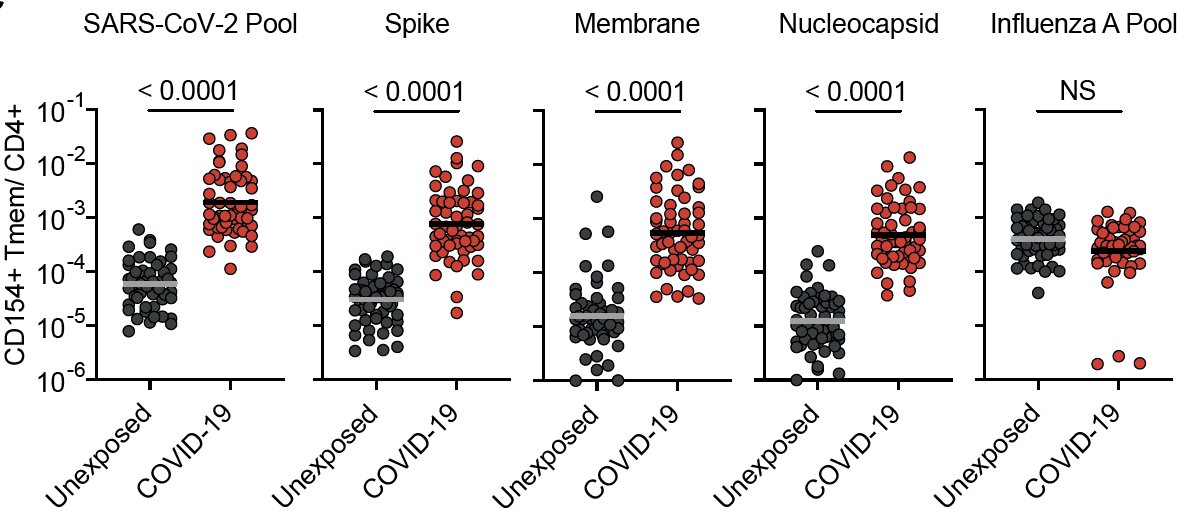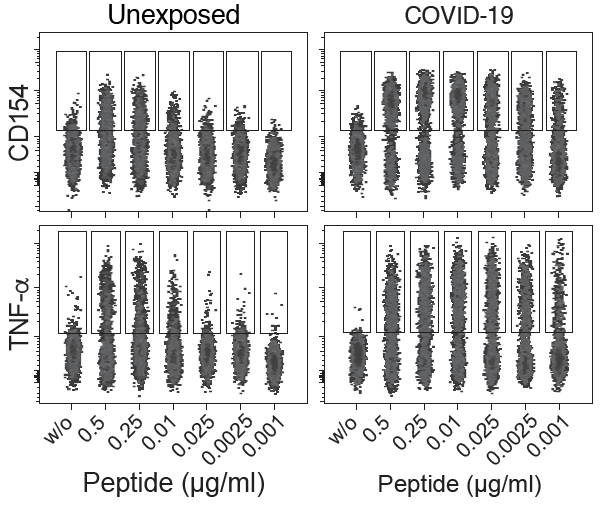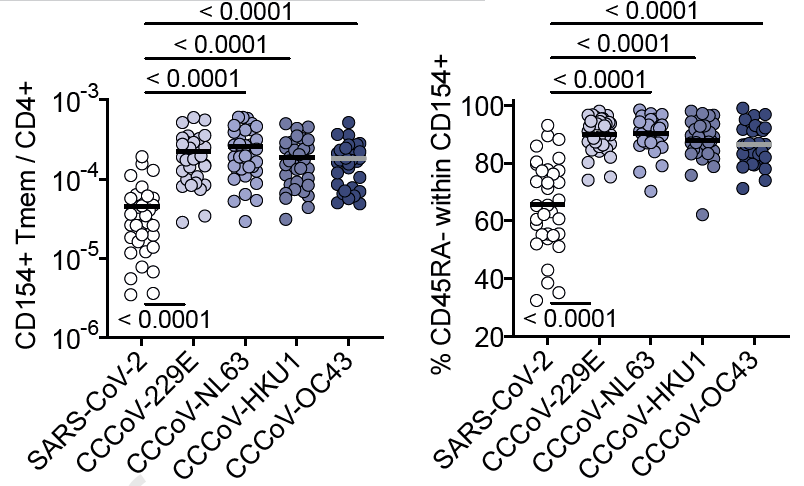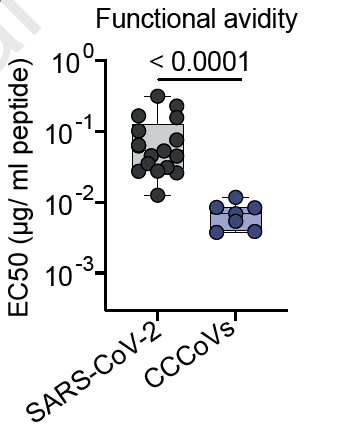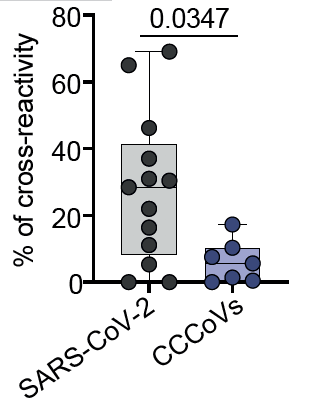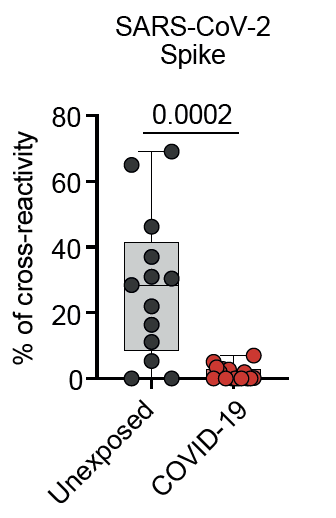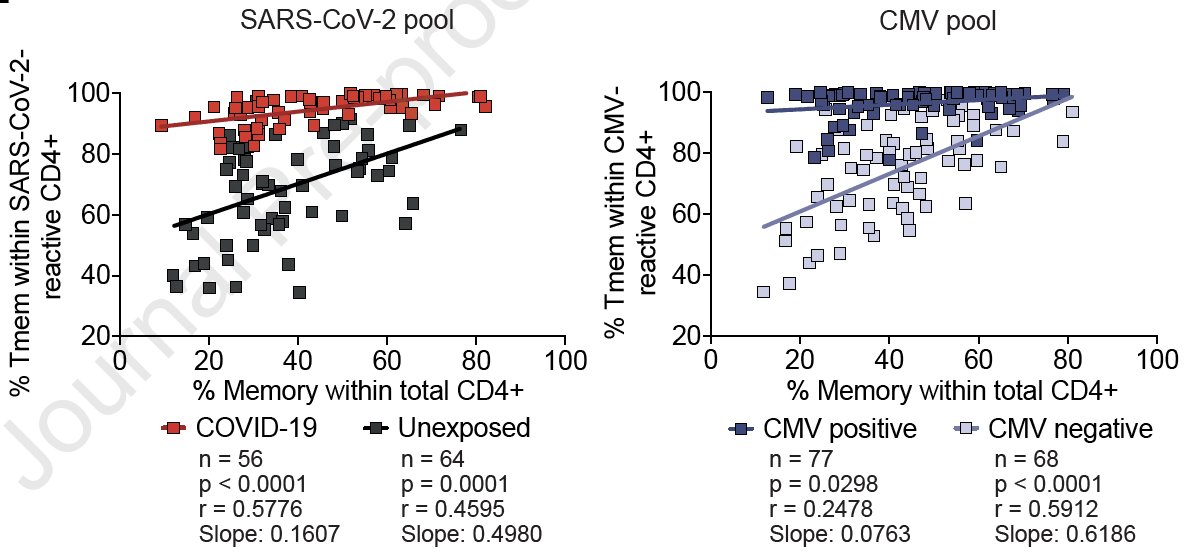It has been repeatedly argued that exposure to common cold viruses may protect children from #COVID19. A new study in @ImmunityCP now argues against a protective role for common cold coronavirus reactive T cells in #SARSCoV2 infection. 1/12. http://dlvr.it/RmTBSb
The authors used a sensitive method to detect antigen-specific T cells (magnetic enrichment of CD40L+ T cells after exposure to overlapping peptide pools). They found that *all* unexposed donors had #SARSCoV2 reactive CD4 T cells albeit at low and variable frequencies. 2/12
Importantly the #SARSCoV2 reactive T cells in unexposed donors had low functional avidity (i.e. they only responded to strong stimulation). In contrast, the #SARSCoV2 reactive T cells in #COVID19 patients were much more sensitive. 3/12
The idea that exposure to common colds protects from #COVID19 assumes that only a subset of the population (perhaps mainly children) have “immunity” to common cold coronaviruses. However… 4/12
This study finds that *all* healthy donors have T cells reactive to common cold coronaviruses. The frequencies of these cells are 10-100 fold higher than the frequencies of #SARSCoV2 reactive T cells. These common cold CoV-reactive T cells have high functional avidity. 5/12
Importantly, common cold CoV-specific T cells only show marginal (<10%) cross-reactivity against #SARSCoV2. In contrast, #SARSCoV2 specific T cells can show reasonable cross-reactivity against the common cold CoVs (0-70%). 6/12
Taking this at face value, it makes more sense to hypothesise that #SARSCoV2 infection might alter your immunity to common cold coronaviruses than vice versa. 7/12
Furthermore, if you look at #SARSCoV2 spike-reactive cells in #COVID19 patients, they show virtually no cross-reactivity to common cold CoV spike. 8/12
If the cross-reactive T cells aren’t specific for common cold CoVs, where did they come from? Interestingly the % of these cells correlated with the % memory within the CD4+ population – in other words the “immunological experience” of the donor. 9/12
The same holds true for the frequencies of pre-existing CMV-reactive memory T cells in CMV seronegative donors. The more “memory” you have, the more likely you are to have T cells that cross-react with something. 10/12
This is not as odd as it may sound - T cells are inherently cross-reactive. We’ve known for years that virus-specific memory T cells exist in unexposed individuals. This fits with how the immune system develops & works. 11/12 https://www.ncbi.nlm.nih.gov/pmc/articles/PMC3626102/
Overall, this paper shows that although there are pre-existing memory T cells to #SARSCoV2 in unexposed individuals, these are low avidity (i.e. poorly functional). The data argue against a major contribution of common cold CoV-reactive CD4+ T cells to SARSCoV-2 immunity. 12/12

 Read on Twitter
Read on Twitter